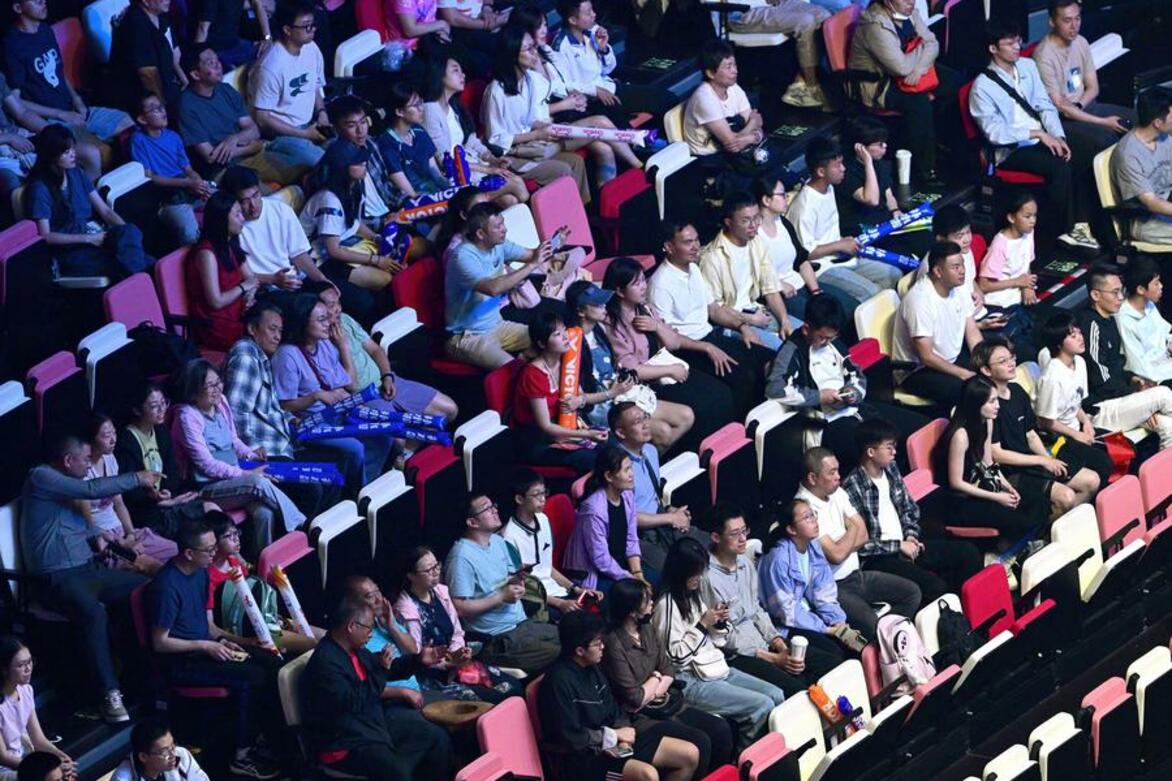Sports events fuel tourism consumption in China
Xinhua
09 May 2025

XIAMEN, May 9 (Xinhua) -- When Jiang Xiaojuan and her husband boarded a plane for a journey of around 3,500 kilometers, they were not just headed on holiday; they were pursuing a shared passion: badminton.
The couple from Urumqi, northwest China's Xinjiang region, flew to the coastal city of Xiamen, east China's Fujian Province, to catch the 2025 Sudirman Cup, held during China's bustling May Day "golden week" holiday.
The couple instinctively knew that spectating would not be enough, which is why they had packed their rackets into their suitcases.
"Xiamen has plenty of badminton courts and a vibrant local scene," Jiang told Xinhua outside the stadium, shortly after cheering for China's win in the final. "As soon as we landed, we joined a local group and played three matches."
For Jiang, blending sports with travel was the perfect getaway: "It's good for both body and mind," she said with a grin.
A new trend of sports-driven tourism is emerging in China as more travelers are building their itineraries around tournaments, marathons and championship games. Cities are seizing the opportunity, leveraging major events to boost hotel bookings, catering consumption and cultural exploration.
The government is backing this trend. National action plans released in March and April highlighted the integration of sports, culture, and tourism as a strategic pillar for stimulating domestic consumption, calling for more high-quality sports programs and distinctive events.
Xiamen's hosting of this year's Sudirman Cup was a prime example. Running from April 27 to May 4, the tournament coincided with the country's five-day May Day holiday, attracting crowds of badminton fans alongside regular holiday tourists.
Local businesses saw a noticeable boost, with hotels across the city reporting higher bookings than the previous year. Shen Xiaoyan of Le Meridien Xiamen said the hotel hosted several groups in town for the competition. To attract more guests, the hotel offered bundled packages with perks like complimentary shuttle service to the arena and free court time.
The city didn't rely solely on the matches. "We rolled out 'sports-plus' packages to enrich the visitor experience," said Chen Lan, deputy head of Xiamen's sports bureau. Initiatives like "Walk with the Champions" city tours and campus visits by athletes added layers of experience beyond stadiums.
More people are prioritizing health and leisure amid rising living standards, said Li Peigong, president of Shanghai Lixin University of Accounting and Finance. "A combination of sports and travel has become a go-to solution that caters to a wide range of needs."
This shift aligns with China's broader development strategy to become a leading sporting nation by advancing competitive sports, encouraging mass participation, and developing its sports industry -- all in parallel.
With annual growth surpassing 10 percent over the past years, the sports industry has emerged as a key driver of consumption, innovation, and employment in the country.
In 2024 alone, Xiamen hosted 40 high-level sports events, generating more than 2.6 billion yuan (about 361 million U.S. dollars) in revenues.
Meanwhile, Shanghai is setting the pace for sports-driven consumption. In March, the Formula One Chinese Grand Prix drew a record-breaking 220,000 spectators, exceeding last year's attendance. Of those, 15 percent were overseas visitors, with 60 percent traveling to Shanghai specifically for the race, doubling the number from the previous year.
But the excitement didn't stop at the racetrack. F1 fans flowed into Shanghai's buzzing neighborhoods, dining at upscale restaurants, shopping in luxury boutiques, and browsing duty-free stores.
"Ticket sales rose by 30 percent compared to 2023," said Yang Yibin, chairman of Shanghai Juss Sports Development Group. "This isn't just a race -- it's an invitation to discover China."
In 2024, Shanghai hosted 178 major sporting events, raking in 11.38 billion yuan. When including related spending on tourism, dining, and shopping, the total soared to nearly 31 billion yuan.
Experts argue that sports tourism is helping lesser-known destinations stay competitive in an increasingly crowded travel market. This ensures steady visitor flow while offering fresh, engaging experiences, said Zou Xinxian, a professor at Beijing Sport University.
"Sports help activate destination brands and build unique, recognizable identities," Zou said. Sports events like marathons enable cities to showcase their local culture in dynamic, participatory ways.
Over the May Day holiday, sports events were seamlessly woven into local culture to attract visitors.
In Jilin, a 10-kilometer warm-up marathon took place alongside a traditional kite festival at the scenic Chagan Lake, with runners passing through villages rich in ethnic character. Meanwhile, in Yunnan, a large-scale sports carnival featuring a variety of competitions drew athletes and tourists alike to its stunning natural landscapes.
Li Peiyao, a researcher at Jilin University, sees a broader shift in consumer behavior: from buying things to seeking meaningful experiences.
"Sporting events don't just bring people together," said Li. "They help foster connection, cultural identity, and shared memories."
